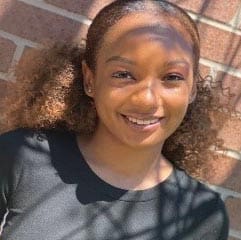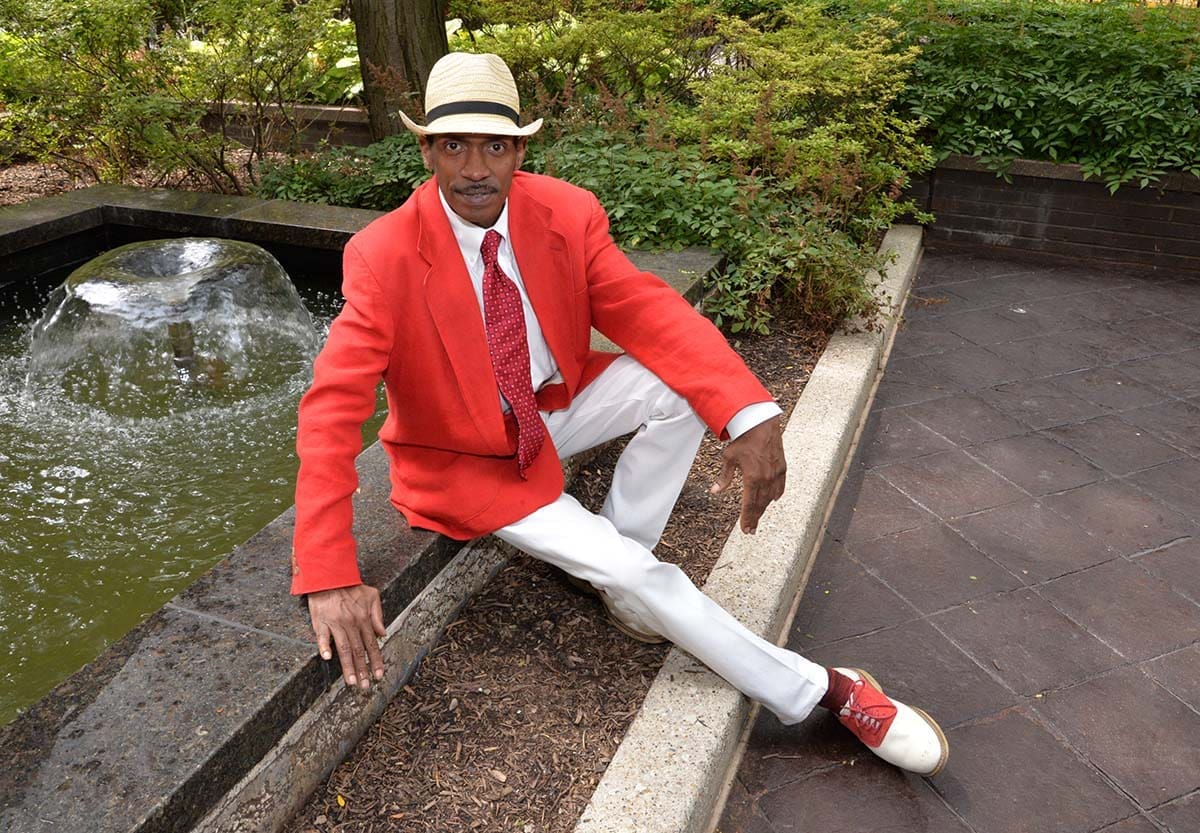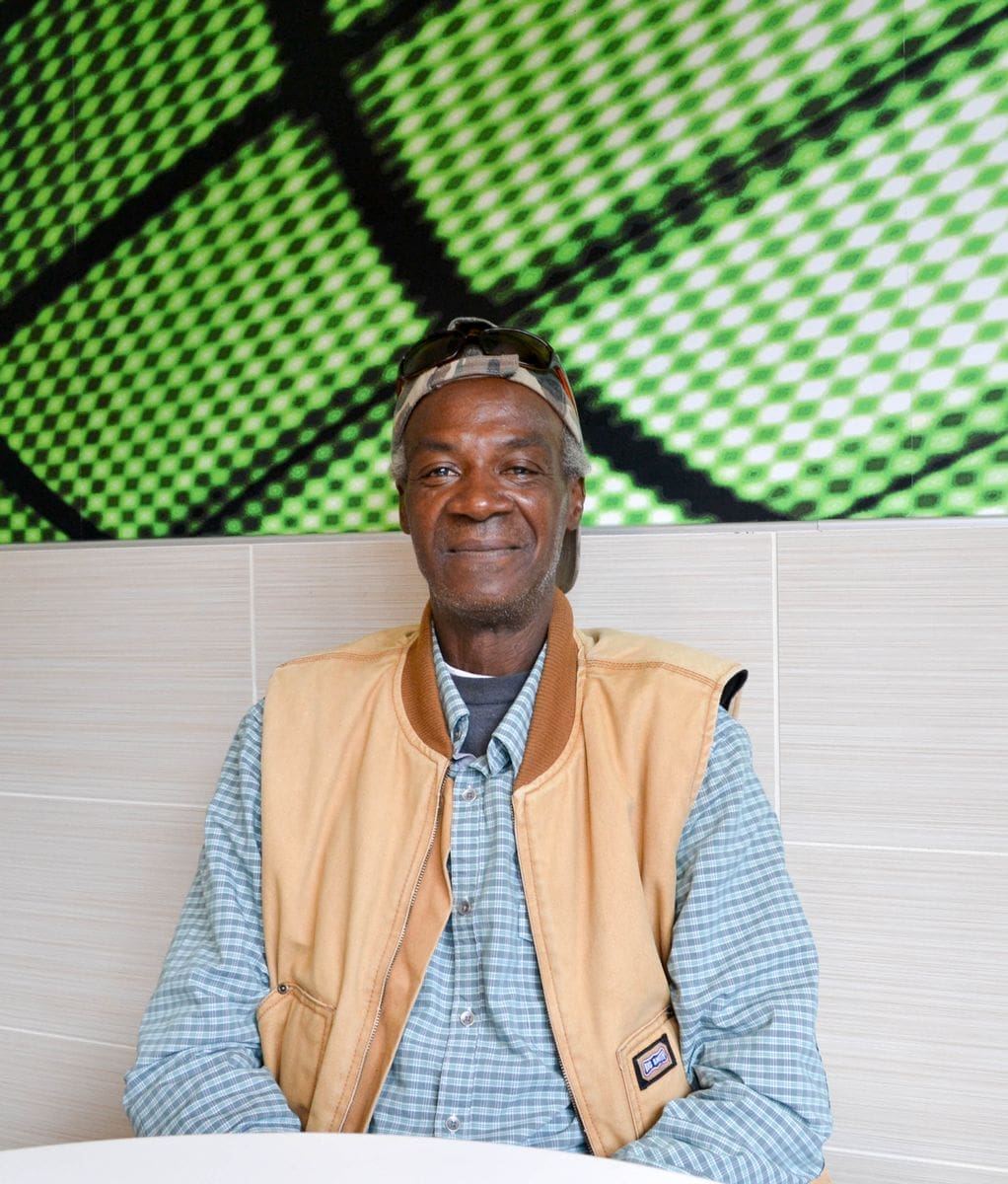By Ella Shapiro
 Jade Greear, a member of AIDS Foundation Chicago (AFC)’s associate board, is excited about this summer and the opportunity to go out more in the upcoming months. Jade’s optimism is something that many of us have not felt while enduring the COVID-19 pandemic, but Jade has good reason to feel optimistic. She’s fully vaccinated against COVID-19.
Jade Greear, a member of AIDS Foundation Chicago (AFC)’s associate board, is excited about this summer and the opportunity to go out more in the upcoming months. Jade’s optimism is something that many of us have not felt while enduring the COVID-19 pandemic, but Jade has good reason to feel optimistic. She’s fully vaccinated against COVID-19.
Jade is one of over 700,000 people of color who have been fully vaccinated against COVID-19 in Illinois as of early April. Jade, alongside other members of AFC’s Associate Board like Terrance Weeden and Matthew Estacio, is a health care worker and was included in the first phase of Chicago’s vaccine distribution plan. Like Jade, Terrance and Matthew are feeling a sense of relief and hopefulness after a year of anxiety caused by the pandemic.
“I felt great,” Terrance said, reflecting on getting the COVID-19 vaccine. “I felt like I took part in something that could be used for the greater good.”
Terrance is a medical fellow in adolescent medicine at Ann & Robert H. Lurie Children’s Hospital of Chicago and received both doses of the
 Pfizer/BioNTech vaccine in December and January.
Pfizer/BioNTech vaccine in December and January.
Despite now feeling relieved, Terrance expressed uncertainty when first given the option to get vaccinated.
At first, Terrance was concerned about how quickly the vaccines were put on the market after being authorized for emergency use by the U.S. Food and Drug Administration (FDA). Despite his initial concerns, as Terrance watched his colleagues get vaccinated and not experience any alarming side effects, he grew more comfortable with the idea of getting vaccinated himself.
Matthew, who also works at Lurie Children’s Hospital as a clinical case manager in the Oncology/Hematology unit, shared similar concerns initially. Matthew’s hesitation grew after hearing about people experiencing a variety of different side effects after getting vaccinated, such as soreness and fatigue.
The Center for Disease Control and Prevention (CDC) has reported that these side effects, in addition to chills, fever and headaches, are common and more likely to appear after your second dose. These mild symptoms will appear within 24 hours of being vaccinated and should go away within a few days.
 Despite his concerns, Matthew ultimately decided that the benefits of getting vaccinated outweighed his worries, and he got vaccinated in December. After his first dose of the Pfizer vaccine, Matthew did experience one of the side effects he had heard about: He had a sore arm that went away after he took some Advil. After his second dose of the vaccine, Matthew’s arm was sore again and he experienced some fatigue directly after receiving the shot.
Despite his concerns, Matthew ultimately decided that the benefits of getting vaccinated outweighed his worries, and he got vaccinated in December. After his first dose of the Pfizer vaccine, Matthew did experience one of the side effects he had heard about: He had a sore arm that went away after he took some Advil. After his second dose of the vaccine, Matthew’s arm was sore again and he experienced some fatigue directly after receiving the shot.
Like Matthew, Terrance and Jade both experienced a sore arm. Terrance had no additional side effects, but Jade, who received the Moderna vaccine, also experienced mild flu-like symptoms that lasted for about 12 hours after receiving her second shot. Despite these mild symptoms, Jade was quick to say that getting vaccinated was worth it.
“It’s exciting knowing that I can protect myself,” said Jade, who is the Manager of Outreach and Testing at Heartland Alliance Health’s shelter-based care project, which works with homeless individuals. “I feel like it’s definitely been a weight off my chest right now.”
As the vaccines roll out and more Illinoisans become eligible to get vaccinated, Jade, Terrance and Matthew said that it is likely that many other people of color will share the same initial reluctance and eventual excitement that they experienced, due to mistrust towards the vaccines.
“In the Black and Brown communities there’s a lot of mistrust, and I felt like for me getting the vaccine was a step towards eradicating that mistrust,” Terrance said.
In addition to getting the vaccine and publicly sharing his personal experience, Terrance had additional suggestions for eliminating medical mistrust and supporting communities of color. Terrance suggested increasing communication about the vaccines within communities of color, setting up ample vaccination sites in the South and West Sides of Chicago that have been disproportionately affected by COVID-19, and having people of color who work in health care available to administer the vaccines to other people of color.
Jade and Matthew echoed Terrance’s ideas. All three said it is incredibly important for people to be able to ask the questions they have about the vaccines and receive honest answers. Doing so will ensure that everyone can make informed decisions about getting vaccinated and staying safe as we progress towards a better normal.
To learn more about COVID-19 vaccines and find additional resources to support your well-being during the pandemic click here.
To learn more about the work of AFC’s associate board click here.



